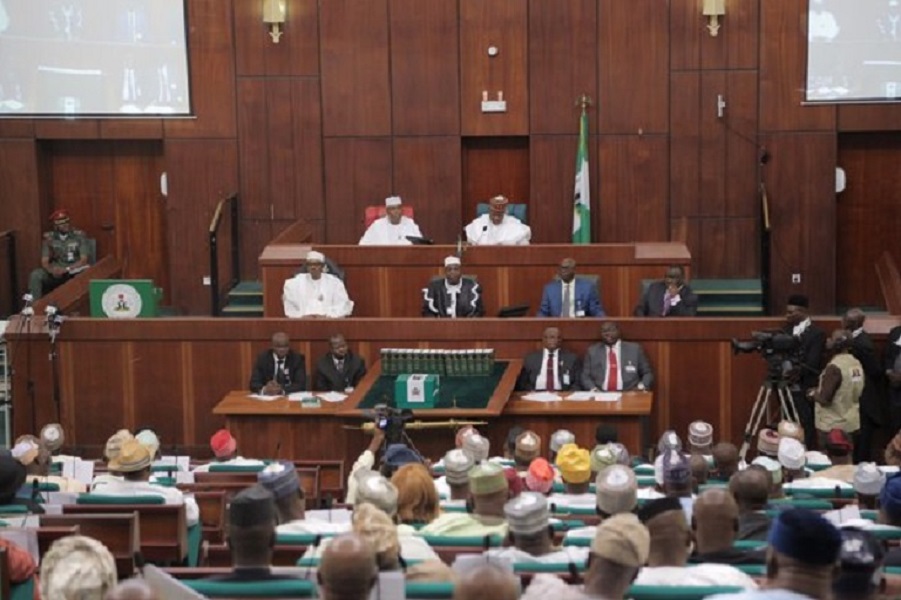The Petroleum Industry Governance Bill (PIGB) passed by the Senate last week may suffer a setback at the House of Representatives, Daily Trust reports.
It emerged at a House Committee workshop on Petroleum (upstream) in Abuja yesterday that the bill passed by senate was not acceptable to legislators at the lower chamber.
Rep Victor Nwokolo (PDP,Delta), who chairs the committee told journalists at the workshop that the Senate worked on and approved only a fraction of the original bill.
For example, he said, the Senate version of the bill completely ignored the issue of host communities and concentrated on the unbundling of the country’s top oil company, the Nigeria National Petroleum Corporation (NNPC).
The lawmaker said the House would give adequate attention to the issues ignored by the Senate.
The workshop, he said, was to refresh the memories of the lawmakers on what the bill entails before they go into the proper work.
Nwokolo said: “It has passed in the Senate, but they (Senate) have only taken a fraction of it, only one-third of it. What is referred to as the Petroleum Industry Governance Bill (PIGB) is what they have passed.
“But in the case of the House, we are taking it holistically. Like you read in the newspapers, the Ijaw Youth Council (IYC) and Ijaw National Congress (INC) said they did not agree with what the Senate has done, because the issue of host communities has not been addressed.
“If you also follow the proceedings in the House, you will agree with me that we are taking it holistically, because we have dealt with the Petroleum Industry Governance Bill (PIGB).
“We have also gone through the fiscal and the host community bill, so we are taking it holistically so that no section of it will be left out,” Nwokolo said.
Asked when the House would begin proper work on the bill, the lawmaker said: “The bill has gone through first reading and by next week, it will go through second reading and it will be given accelerated attention that it requires.”
On the delay by the House in dealing with the bill, the lawmaker said they needed to study trends in other parts of the world with regards to petroleum industry in order to come up with a law that would be accepted by all.
“Look at the case of the Nigeria Liquefied Natural Gas (NLNG), have you ever heard that NLNG is being shut down for a day? The basic reason is because they have taken care of the host communities. This is what we want to address.
“The essence of this workshop is to broaden members’ knowledge for them to go home to begin to think. This contentious issue of host communities is that: is it going to be restricted to oil producing communities?
“When you are talking about mineral resources today, it is not only petroleum. By the grace of God, the government is trying to give a drive towards other mineral resources, like coal that you find in Plateau, Kogi states and other areas.
“So, when you talk about host communities, it is going to be applicable to all parts of the country, so that it will not be seen as a means of empowering only the Niger Delta region or oil producing communities,” he said.
The PIB was sent to the National Assembly by late President Umaru Yar’Adua in 2008 and it has undergone various changes since then.
The Senate version split the NNPC into two, namely: the National Petroleum Company (NPC) and the Nigeria Petroleum Assets Management Company (NPAMC).
The NPC would take charge of petroleum products, while the NPMAC would operate as a commercial entity with the responsibility of managing all assets currently held by the NNPC.
The bill also proposed the establishment of the Nigeria Petroleum Regulatory Commission (NPRC) to serve as the regulator and watchdog responsible for licensing, monitoring, supervision of petroleum operations enforcing laws, regulations and standards across the value chain.
The companies would absorb the existing Department of Petroleum Resources (DPR), Petroleum Products Pricing and Regulatory Agency (PPPRA) and the Petroleum Equalization Fund (PEF).
–
Source: https://www.dailytrust.com.ng/news/general/petroleum-bill-faces-setback-at-house-of-reps/200236.html







